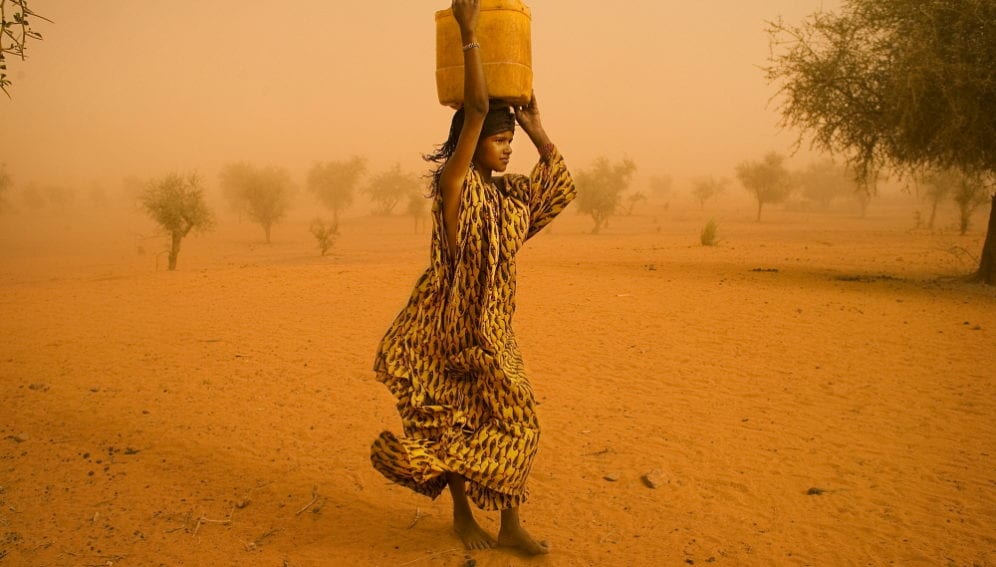By: Paula Park
Send to a friend
The details you provide on this page will not be used to send unsolicited email, and will not be sold to a 3rd party. See privacy policy.
[MARRAKESH] The Intergovernmental Panel on Climate Change (IPCC) should do practical research that can help mitigate global warming effects and advance knowledge in regions such as Africa where climate systems are little understood, a UN official has said.
“We have to get much better at reshaping the research so that it doesn’t stay in a high space, so it’s talking to local communities,” Fatima Denton, coordinator for the African Climate Policy Centre (ACPC) of the UN Economic Commission for Africa, told SciDev.Net on the sidelines of the Fourth Climate Change and Development Conference in Africa earlier this month (8-10 October).
Denton joined a chorus of scientists and policymakers who question the purpose of the IPCC process of producing a consensus report every five years. The report requires thousands of hours of voluntary research by thousands of scientists — yet the last two reports basically reached the same conclusion: human actions are contributing to unprecedented warming of the Earth’s atmosphere that, unchecked, will be catastrophic. Furthermore, a work of consensus by so many different scientists can only produce a general statement, she added.
“We have to get much better at reshaping the research so that it doesn’t stay in a high space.”
Fatima Denton, ACPC
The problem, Denton said, is that the requirement to produce one global report blurs key regional differences — another point that has been voiced before.
The global report cannot adequately address regional variations in climate — particularly in regions such as Africa where climate processes are poorly understood.
Mahmoud Samy, head of environmental affairs and sustainable development in Egypt’s foreign ministry, and a climate change negotiator, agrees. Africa, in particular, is little studied and what research has been done was mostly carried out by experts from other continents, he told SciDev.Net. This has left gaps in the understanding of how climate and climate change works on the continent, he said.
For example, Western climate models generally work on resolution of 100 square kilometres and cannot accurately reflect Africa’s convection systems, the process through which air and moisture “bubble up” to become clouds, said Richard Graham, a scientist at the United Kingdom’s Met Office, and chair of the World Meteorological Organization’s Expert Team on Extended and Long-range Forecasting. While the models and other calculations provide a general sketch of the African system, models need to be scaled to ten square kilometres to improve predictions, he said.
Denton would like the IPCC to pair developed country scientists such as Graham with those from developing countries to do deeper regional analyses. “We have to move toward that kind of collaborative research that would expose Southern researchers to new findings,” Denton said.
The panel should also produce reports on specific regional issues.
An IPCC report author acknowledged Denton and other scientists’ concerns, but cautioned against trying to reorient the panel’s work because building a consensus about such a new direction would take too long and may deliver limited benefits.
“I do not see any other mechanism that will replace the IPCC,” said Youba Sokona, co-chair of the working group that prepared the IPCC’s latest report volume on mitigation.
Sokona agreed that the report is short on Africa-specific analysis. One reason is that African data remains scarce, he said.
He also agreed that reporting by consensus weakened the report by causing key points to be softened due to government resistance. For example, he said, it is difficult to report on technology transfer because “the US government is allergic” to the issue.
Some frustrations with the report were due to the long-time stalemate in climate negotiations between governments, Sokona said.
Climate change experts want the IPCC to give them facts that will break the negotiating logjam, he said. But he thinks the problem with the negotiations lies not with the report, but with countries’ contrasting vested interests.














